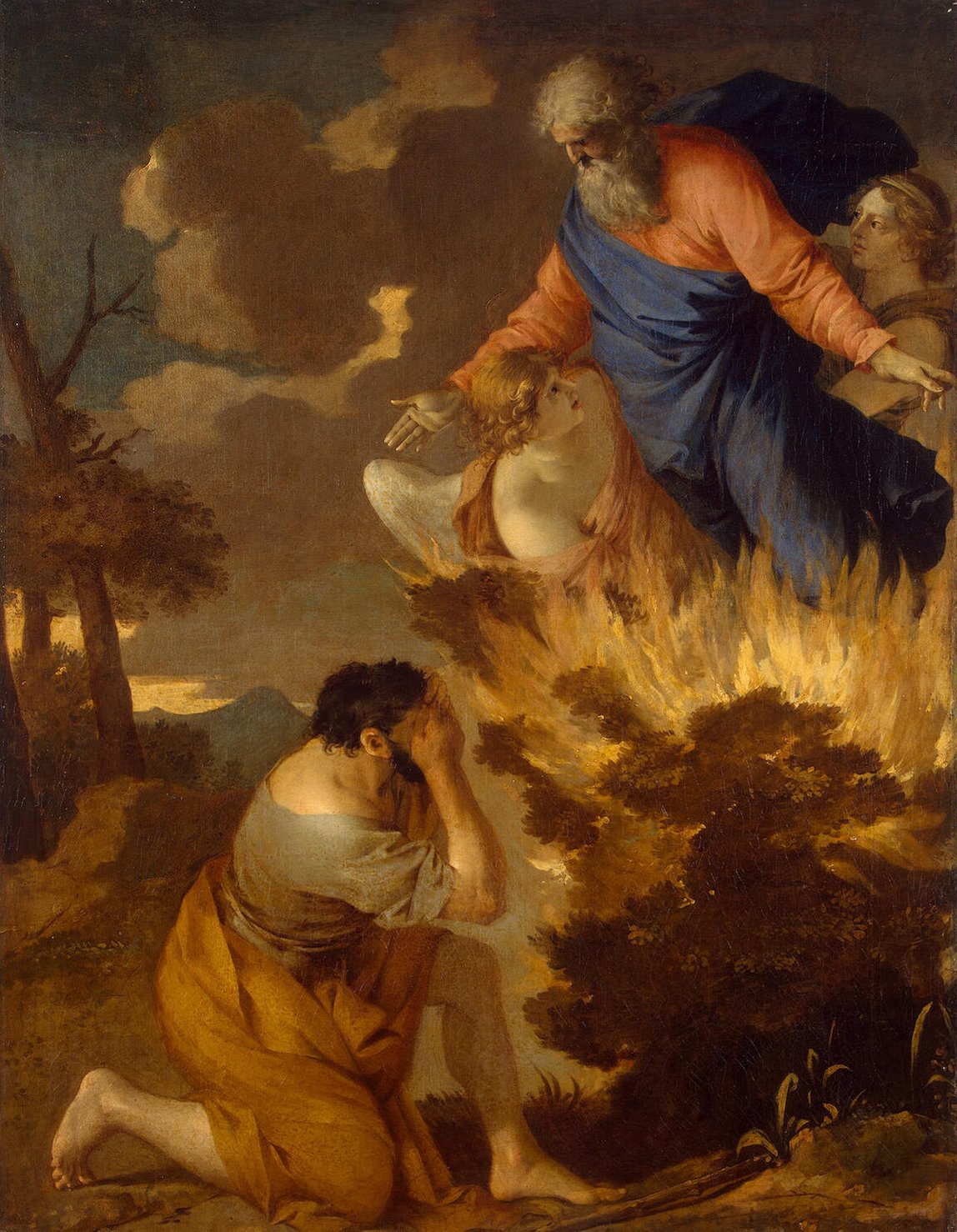A scientist I once knew used to quote today’s First Reading as the scientific proof for the existence of God. The scientific method, he said, of observing a phenomenon and then investigating it was used by Moses here. He saw a bush burning without being consumed, and when he went to investigate it, he discovered God. My friend was joking, of course; yet there is some truth in what he said. The burning bush was a supernatural sign of God’s presence.
We are finite beings; limited, confined to one place and one time. God is limitless, in all places and beyond time. How does such a mighty Being meet us? He has to break into time, to meet us in history, so to speak. But when he does, extraordinary things happen. Therein lies the real mystery of the burning bush. As one modern hymn puts it, “We are a moment; you are eternal.”
 How does such a God come to meet us? For it is certain that we could never go out to meet him. He comes to us as one like us. And he comes to us in the only way in which we can learn to know him. He does not just shine through the fabric of our history, as at the burning bush. In his fullest appearance to us, he actually enters into our history as one like us. The Lord Jesus is the ultimate reaching out of God to us to save us from the sinful mess into which we have plunged ourselves. We can not only learn to know God; in Jesus we can learn to love him, and with the same intense love with which we can love another human being. “He who has seen me has seen the Father…love one another just as I have loved you.”
How does such a God come to meet us? For it is certain that we could never go out to meet him. He comes to us as one like us. And he comes to us in the only way in which we can learn to know him. He does not just shine through the fabric of our history, as at the burning bush. In his fullest appearance to us, he actually enters into our history as one like us. The Lord Jesus is the ultimate reaching out of God to us to save us from the sinful mess into which we have plunged ourselves. We can not only learn to know God; in Jesus we can learn to love him, and with the same intense love with which we can love another human being. “He who has seen me has seen the Father…love one another just as I have loved you.”
We also encounter him in his self-sacrificing love as he dies on the cross. “Father, forgive them, they know not what they do.” And in those comforting words which were spoken to a criminal dying alongside him, the only person, as G.K. Chesterton tells us, to whom Jesus ever uttered them: “Truly, I tell you, today you will be with me in paradise.” Or the words he spoke to his disciples the night before he died: “A man has no greater love than to lay down his life for his friends. You are my friends if you do what I command you.”
Finally, we encounter him as the Risen Lord, who has destroyed death. Last week we saw him transfigured, revealing for an instant his heavenly glory. And through the glory of the Resurrection we see that his heavenly glory becomes something he wishes to share with us, for he has destroyed death and sin by dying for us to make it possible for us to share in that heavenly glory, in the everlasting life he has attained on our behalf.
God came amongst us in Jesus because it is the only way in which we could ever learn fully to know him. “There is no other name in heaven or on earth by which we can be saved” is how Peter puts it in the very first Christian sermon (Acts 2). Jesus needs to become a real, powerful, constant presence in our lives. As we relive the events of our salvation this Holy Week and Easter, may he become an ever more present reality in our lives and hearts.
Fr Phillip.
